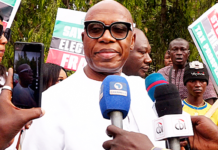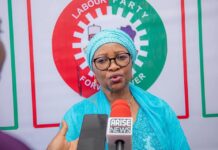The Economic Community of West African States (ECOWAS) is facing a significant staffing and institutional crisis following the formal withdrawal of the Alliance of Sahel States (AES)—comprising Mali, Burkina Faso, and Niger—at the end of January 2025.
The exit of the three military-ruled nations has triggered a mandatory separation of their nationals from ECOWAS institutions, creating substantial human resource gaps and raising questions about the bloc’s operational capacity and legal integrity.
The withdrawal necessitates the separation from service of nationals from the three exiting countries, as mandated by Article 50(h) of the ECOWAS Staff Regulations and the Revised Treaty, which requires staff to exit on the official date of their country’s withdrawal to maintain equitable geographical representation.
Crisis of Compliance and Integrity
Despite the clear legal framework, the ECOWAS Commission has reportedly faced challenges in implementing the separation protocols. A circular issued earlier this year, which reportedly retained staff at the P4 level and below from the exited states, drew legal scrutiny. The Centre for Community Law (CFCL), a legal advocacy group, threatened legal action, arguing the Commission lacked the authority to override the Council of Ministers or unilaterally reinterpret binding rules.
The Commissioner for Internal Services, Prof. Nazifi Darma, has emphasized the urgency of addressing the staffing challenge. Speaking at the 37th meeting of the ECOWAS Administrative and Finance Committee in Abuja, he urged member states to address the staffing gaps, stressing the importance of “merit, compassion, and regional inclusion in recruitment.”
Another official, Awe, stressed the need to accelerate the process: “Regarding the staffing of ECOWAS institutions, it has become more imperative with the exist of the three countries, the commission needs to work on the process of planning and filling the available vacancies in the institution.”
Calls for Urgent Reform
The institutional crisis has heightened calls for urgent structural reform within the 50-year-old bloc. Awe also highlighted the financial strain, urging member states to “comply with the payments of their levies especially now that Burkina Faso, Niger and Mali have withdrawn their membership from ECOWAS to enable the region to carry out its programmes for the benefit of its citizens.”
The Commissioner for Internal Services, Prof. Nazifi Darma, acknowledged the dire situation, stating, “Our region is experiencing a crisis, and it is important that we come together to assess the situation and strengthen our efforts to find lasting solutions.” She further emphasized the need to accelerate political and security reforms to meet the demands of the “new reality”, arguing that “The future of ECOWAS depends on our shared commitment to building a peaceful and stable region.”
The withdrawal marks the most significant crisis in ECOWAS history and threatens to weaken regional efforts against terrorism, economic instability, and diplomatic coordination.





